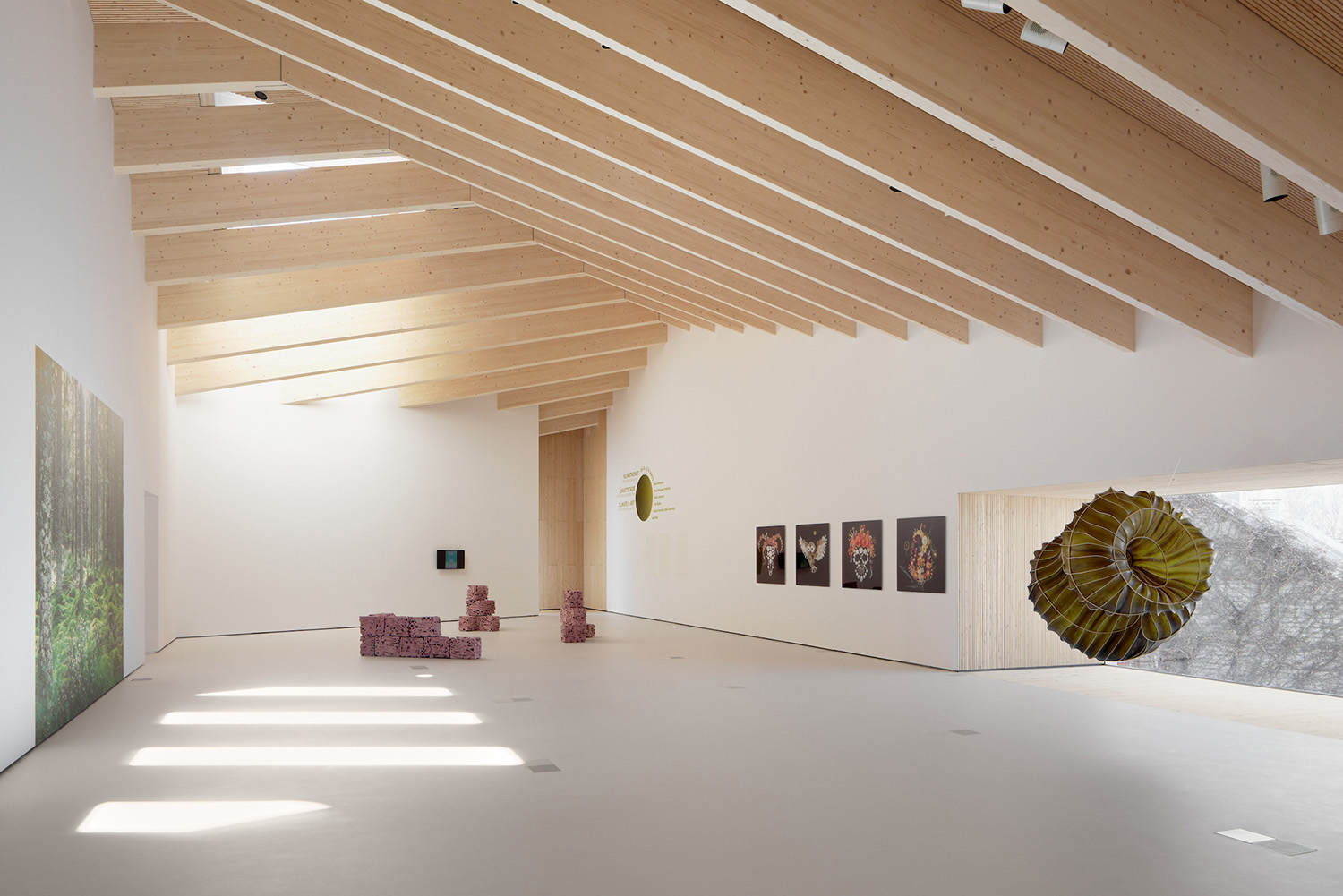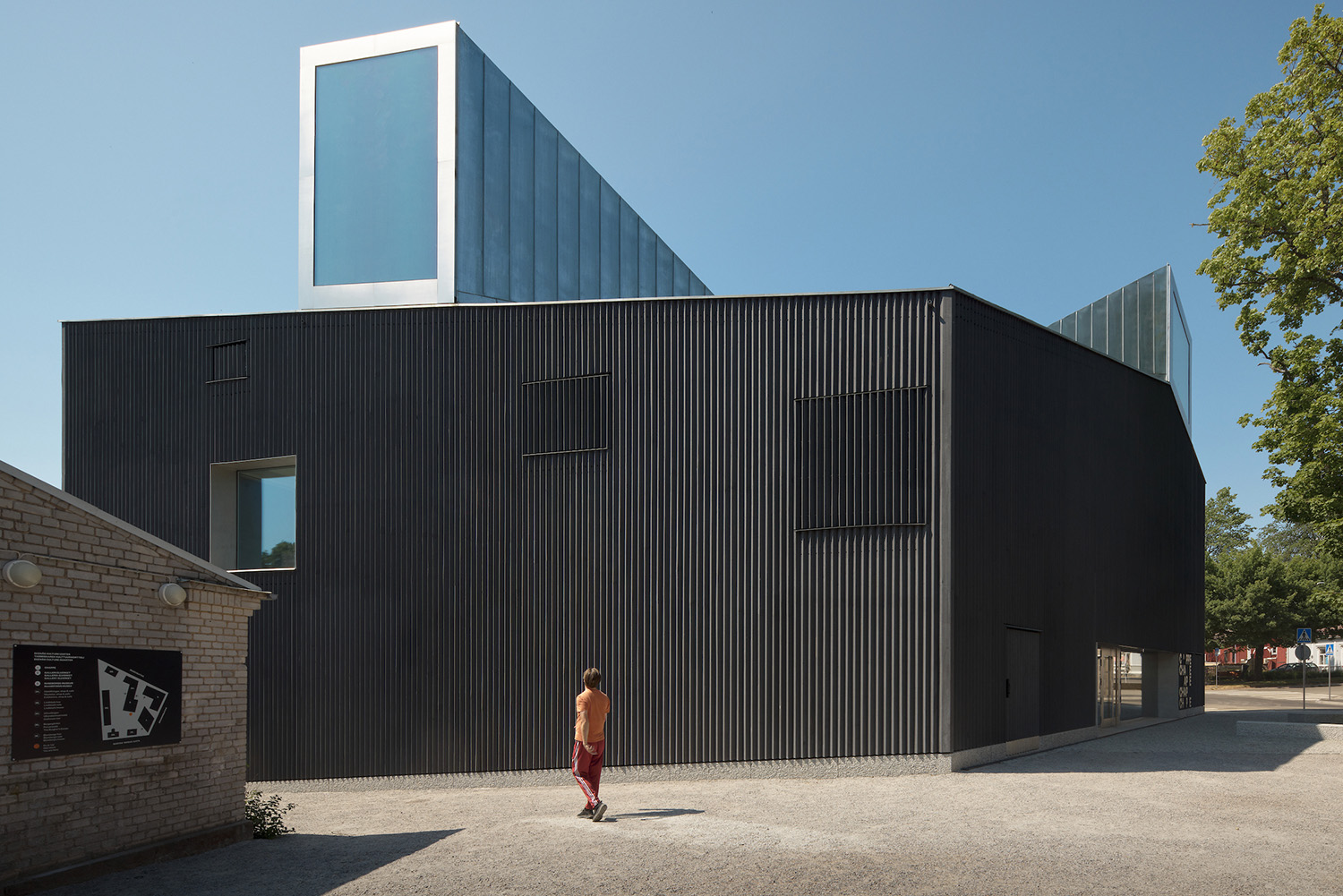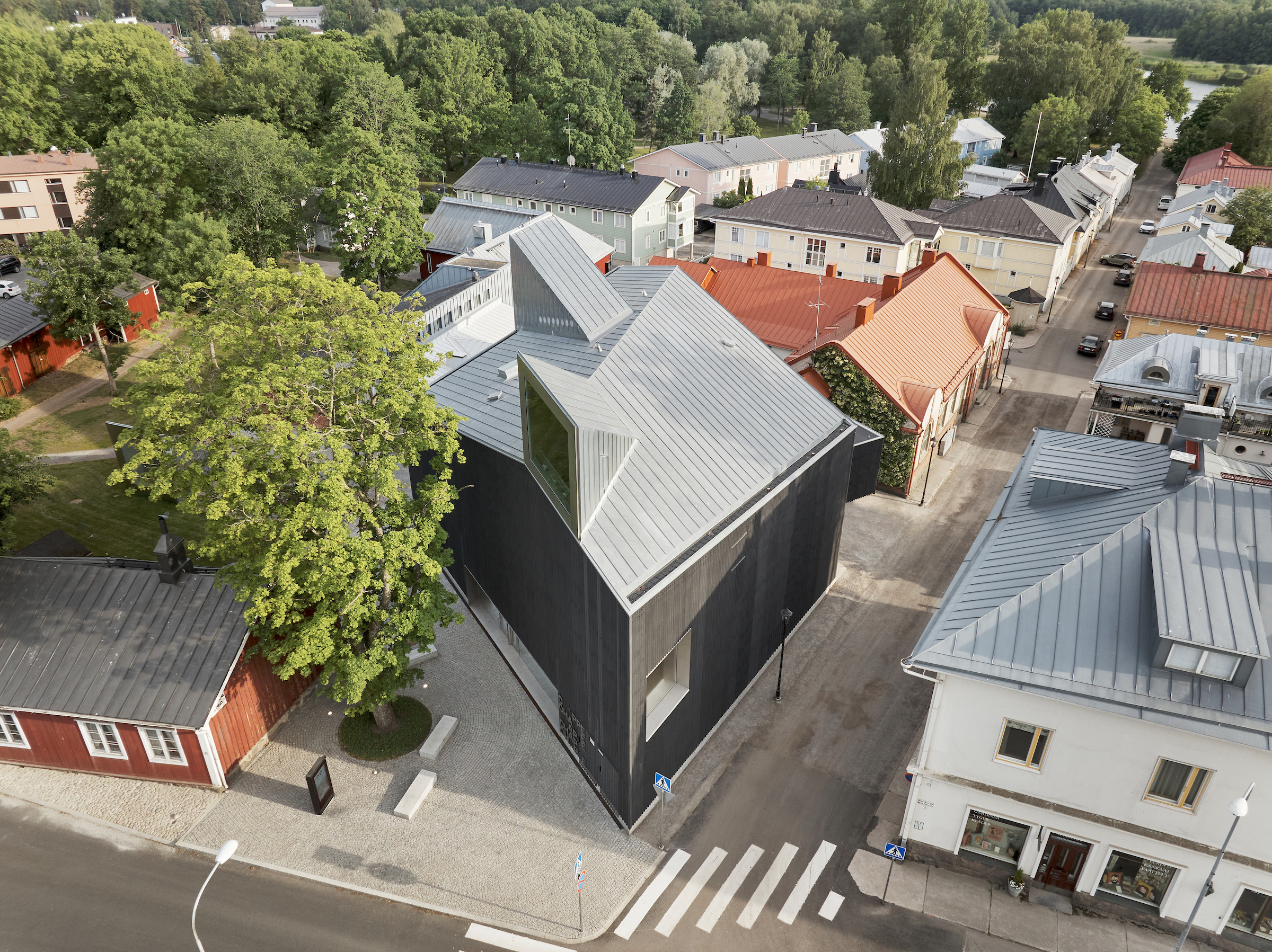The finalist for Finlandia Prize 2023
Chappe Art Museum
Chappe is a significant addition to Tammisaari’s cultural offering and appeal and will delight visitors and residents alike.
The finalist for Finlandia Prize 2023
Chappe is a significant addition to Tammisaari’s cultural offering and appeal and will delight visitors and residents alike.
JKMM Architects: Asmo Jaaksi (principal designer), Gerrie Bekhuis (project architect)
Albert de la Chapelle Art Foundation
K Jousmaa Oy
Tammisaari
1,210 sqm
2023
JKMM Architects design team:
Asmo Jaaksi, Project lead, arkkitehti SAFA
Gerrie Bekhuis, Project architect, arkkitehti
Teemu Toivio, Architect
Edit Bajsz, Architect
Marcus Kujala, Architect
Peter Vuorenrinne, Designer
Laura Hämäläinen, Interior Architect
Teemu Taskinen, Architect
Teemu Kurkela, Architect
Samuli Miettinen, Architect
Juha Mäki-Jyllilä, Architect
Consultants:
Structural Engineers: WSP Finland Oy
Construction Management: WSP Finland Oy
M&E Engineers: Granlund Oy
Geotechnical Engineering: WSP Finland Oy
Fire safety: Jensen Hughes Oy
Acoustics: WSP Finland Oy
Landscape: WSP Finland Oy
Signage: Werklig Oy
Exterior/materials
Fir tree balk facades: K. Jousmaa Oy / Materials: Taskisen puu Oy
Plinths and stonework: Loimaan kivi Oy
Glazing: Jaatimet Oy
Metalworks: Raaseporin Peltisepänliike Oy Ab / Materials: Rheinzink
Interior / materials
Glulam beams: Versowood Oy
CLT-eelements: Timberpoint Oy
Fir tree walls / ceilings: K. Jousmaa Oy / Materials: Taskisen puu Oy
Acoustic ceiling: Lumir Oy
Signage: Novela Oy
Artists and designers
Entrance lighting installation, ’Spegling’: Petri Vainio (Yht. 35 125 kpl RST-lamellia)
Main stair’s ceramic artwork ’Meri’: Karin Widnäs
Installation ’Memento’: Harrie Liveart: Saija Kassinen and Meri Linna
Main hall furnishings: Atte Pylvänäinen, Kari Virtanen (made using trees that were taken down during construction)

Tuomas Uusheimo

Tuomas Uusheimo
Chappe Art Museum, completed in spring 2023, is both a boldly modernist building and a well-judged and respectfully conceived addition to the historic, multilayered and modestly proportioned structures that make up Tammisaari’s existing building stock. The facades are executed in bias cut spruce cladding finished with a grey paint, the angular shapes providing texture and patterning to the building. Wood is an element that is very much seen and felt throughout the interiors too and lends a sense of calm and acoustic harmony to the space. Chappe is a significant addition to Tammisaari’s cultural offering and appeal and will delight visitors and residents alike.

Tuomas Uusheimo
Chappe Art Museum first opened in April 2023. The long queue that forms at its doors well before opening time each morning is testament to the reception it has had. What visitors find so fascinating and moving about Chappe is not only the carefully curated and insightfully displayed art but also the architectural design created by JKMM Architects. The foundation behind the project appointed JKMM to design the building following a winning entry submitted by the practice to a design competition that ran in 2019.
Chappe Art Museum succeeds in being two things at once: a boldly modernist building and a well-judged and respectfully conceived addition to the historic, multilayered and modestly proportioned structures that make up Tammisaari’s existing building stock. As seen at Helsinki’s Amos Rex art museum, some of the museum is located on a subterranean basement floor that also provides access to Raasepori Museum’s main building. In addition to the museums, the neighbourhood is also home to Galleria Elverket.
Chappe has been using wood and concrete. Its mass, character, facades and detailing are carefully and skilfully considered and have been chosen with this particular building in mind. The facades are executed in bias cut spruce cladding finished with a grey paint, the angular shapes providing texture and patterning to the building.
Chappe is an inviting, accessible building. Wood is very much seen and felt throughout the interiors, lending to them a sense of acoustic harmony and calm. The above-ground spaces are bathed in natural light and the views of the city that can be glimpsed through the windows are like framed landscapes. The interiors are complemented by the artworks that are deftly incorporated into the architecture. The museum’s staircase is decorated with ceramic tiles in a range of watercolour-like blues by Karin Widnäs, while the foyer is illuminated by Petri Vainio’s Spegling, executed with consummate skill and comprising 37,000 pieces of steel that glimmer and flutter in the air like the leaves of a tree in the wind. Joiners have made use of the trees felled on the site to create bench seating for museum visitors.
Chappe may be small, but it punches well above its weight. The museum is a significant new addition to Tammisaari’s cultural offering and appeal and will delight Raasepori visitors and residents alike. Moreover, it represents precisely the sort of high-specification cultural initiative and investment that Finland’s small towns and rural areas need to counteract population decline and to balance out the country’s capital-centric approach to culture, thanks to their capacity to strengthen local identities and serve as a pull factor. Due to a reduction in funding available from central and local government sources, Chappe is a privately financed initiative and an excellent and encouraging example of such a model’s capacity for delivering public good.